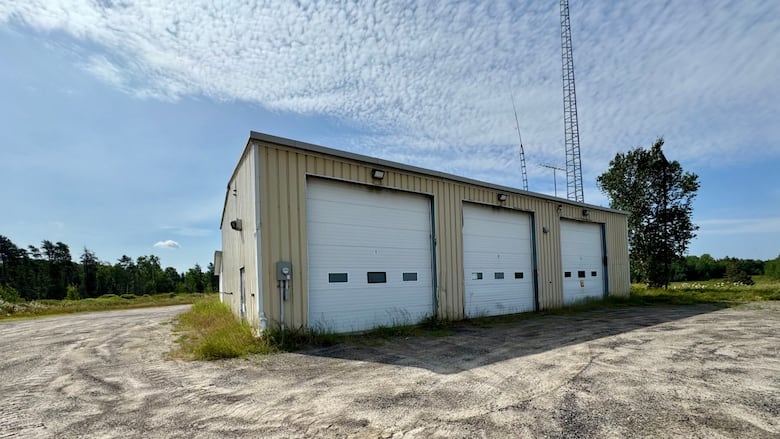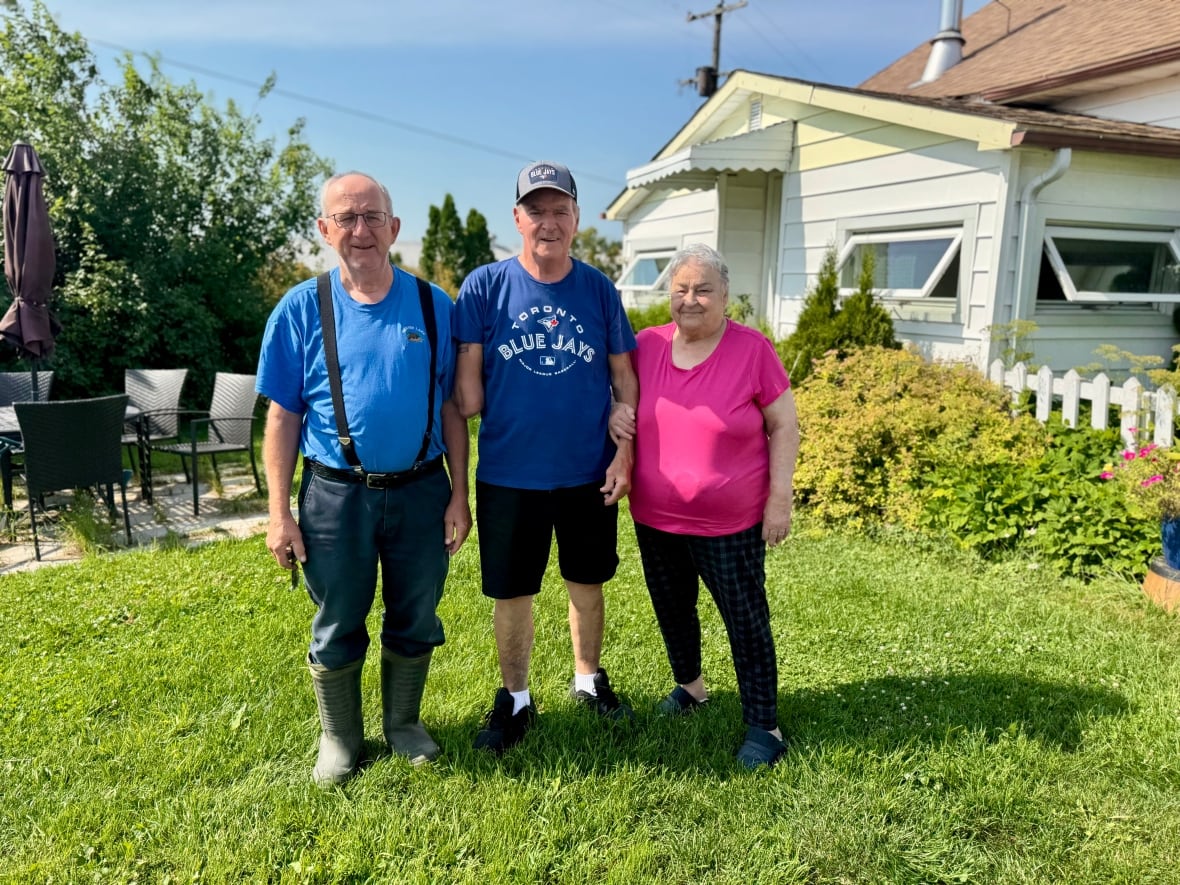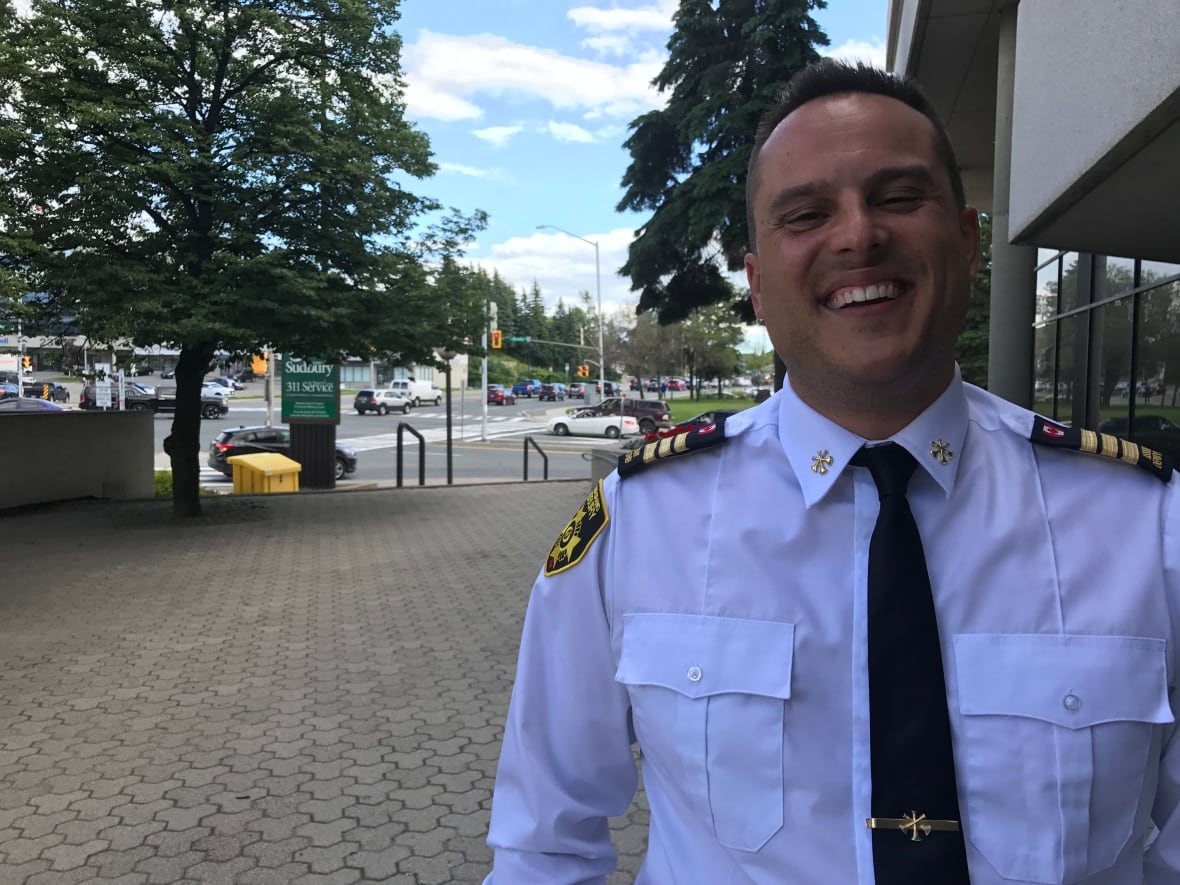City of Sudbury says fire response times improved after Beaver Lake hall closed, residents push back
Beaver Lake was given a year to recruit enough firefighters to keep the hall open, but didn't sign up enough

It's been just over a year since the fire hall in the Beaver Lake area of Greater Sudbury was shut down and all part-time firefighters, often called "volunteers," were asked to report either from home using their personal vehicles or to the Whitefish station.
The city says since then, the time it takes firefighters to get to a fire in the area has actually improved, but some members on the Beaver Lake Fire Services Committee still aren't convinced and argue the closing of the fire hall is putting their community at risk.
In the past year, the average time it takes to get to a fire in Beaver Lake is 16 minutes and 35 seconds, a 55 second improvement over the 2019-2024 average of 17 minutes and 30 seconds, according to the City of Greater Sudbury.
Brenda Salo, a member of the Beaver Lake committee, called the new response times "a lie," saying based on the committee's observations the response time is closer to 25 minutes.
She said when car crashes close Highway 17, which runs right through Beaver Lake, the road closure would keep fire trucks from Lively from getting to an emergency in the western end of Greater Sudbury.

"I know that you can't totally run a business on what ifs, but we are so scarcely staffed with volunteer firefighters and the appropriate location of the trucks," Salo said.
"We are at risk. Lives are at risk. Homes are at risk. Environments are at risk because of the very, very poor operation of the City of Greater Sudbury Fire Service. We are considering ourselves abandoned, excommunicated and it's got no better."
City says new system is working
Jesse Oshell, Greater Sudbury's deputy fire chief, says response times measure the duration required for the first fire truck to reach an emergency.
Oshell explained when an emergency is called in, the 911 centre dispatches the closest station as well as a fire truck staffed with full-time firefighters.
"Whitefish is going to be dispatched out into Beaver Lake along with Waters and Lively. And then a full time fire truck from Long Lake is also going to be sent to a confirmed fire as well," he said.
Oshell added that the dispatching process has been in place for a number of years prior to the consolidation of volunteer fire halls in the outlying area.
"I would say that our consolidation is showcasing exactly what we had said in our reports," he said.

Brian Weight, chief steward for the Christian Labour Association of Canada Sudbury Local 920, which represents volunteer firefighters in the city, said the new response times were "certainly not what I would have expected."
"I would have personally thought that it would have been a longer response time, but I'm happy to hear that it's not," he said.
"It's not ideal to lose a station in a community, but it's good to know that the rest of the volunteers in that district are picking up the slack."
But Salo argues it's a completely different story.
"Our own investigation has found out that by the time our guys get the call and get to respond, either the highways closed and they can't get through or the trucks already left the station," she said.
A controversial history
The debate to consolidate fire stations in Greater Sudbury's outlying areas has been highly contentious and dates back to 2017.
The closing of fire halls in rural and suburban areas was part of a larger fire service optimization plan that proved so controversial, city council refused to even receive the report.
Then in 2023, Greater Sudbury city council voted to merge Copper Cliff with Lively, the station in Falconbridge with Garson, and the fire brigades in Val Caron and Hanmer were consolidated into Val Therese.
The communities of Skead and Beaver Lake strongly opposed the shutting down of their fire halls and council voted to keep those two stations open for one year if they were successful in recruiting enough volunteer firefighters.
Skead hit its target, but Beaver Lake wasn't able to sign up enough firefighters keep its doors open.
"We fought together, side by side, and they won and we lost. Within 24 hours, our fire station was locked out, our truck was removed, already gone, somewhere given to somebody else and we stopped existing," Salo said.
Fire departments across Canada are struggling to train and keep new volunteers, and in Greater Sudbury, that's been a problem for years, with most fire halls in the outlying areas staffed by only a handful of firefighters, including just three in Beaver Lake in 2023.
The Whitefish fire station had been the primary response to Beaver Lake for a while, Oshell said so the merger was for more for efficiency.
Although the improved response times are a good sign, Weight said the morale for part-time firefighters in Greater Sudbury is at an all-time low since the consolidation because they're not necessarily responding to calls in their own communities.
"Copper Cliff firefighters now have to respond to Lively and there the volunteers no longer respond to Copper Cliff at all. So it's kind of like they're serving their community, but they're not allowed to respond there," he said as an example.
Oshell believes the controversy stemmed from misconceptions about the plan.
"I live in a rural part of our community as well and protected by a volunteer fire station. Certainly I know that you get very attached and accustomed to the fire station being there and you have a perception that that is the station that is going to be coming to my residence or to my emergency first or fastest," he said.
He explained that in the case of volunteer firefighters it comes down to travel time and availability since they don't work full-time for the city.
"They have to travel from where they are to the fire station and then from the fire station to the emergency. So inherently there's going to be some time that it takes to accomplish those things," Oshell said.
He said while the debate over fire protection in the outlying areas has been going for years, he feels the drop in response times for Beaver Lake is a good sign.
"It was a hot topic at the time, most definitely, but we take absolutely the utmost care and consideration for our residents. We certainly want to strive to provide an excellent fire service to our community," Oshell said.
"We have a very safe community and we're going to keep it that way. And I think we're going to continue to see successes out of the station rationalization plan that council approved."

